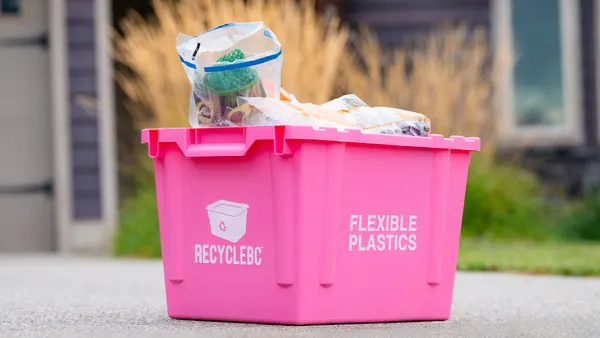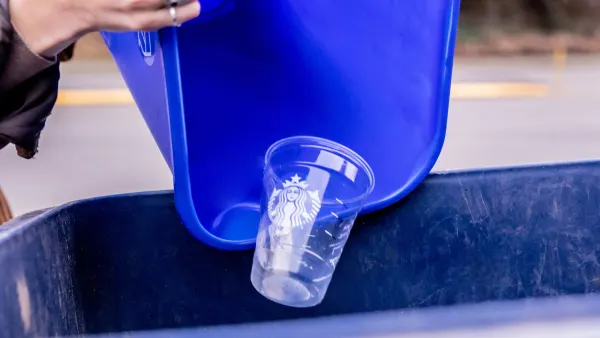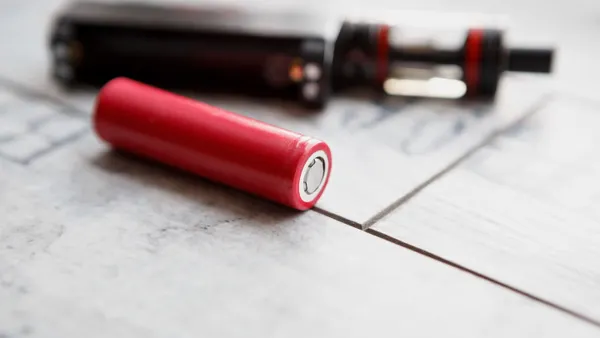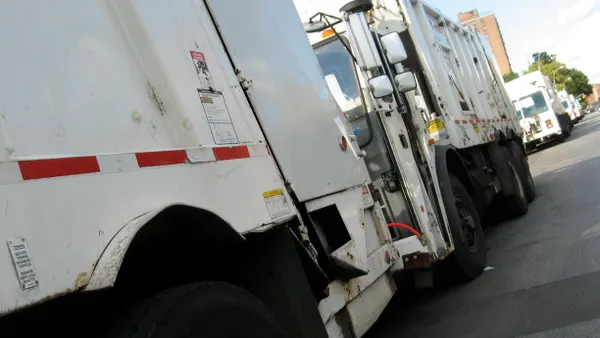Dive Brief:
- Nestle Waters North America recently announced a $6 million investment in the Closed Loop Fund to help support new recycling infrastructure in the U.S.
- "The United States has one of the lowest recycling rates of any industrialized country, but it doesn’t have to stay that way. The U.S. has an opportunity to lead the way in recycling, while creating jobs, economic growth, and a more sustainable future," said Nelson Switzer, the company's chief sustainability officer, in a press release.
- In the announcement, Nestle tied this investment to its goal of having "zero environmental impact" by 2030. They touted a more than 60% reduction in plastic content for their bottled products since 1994 and the fact that 90% of their Arrowhead brand water bottles now use 50% post-consumer recycled plastic.
Dive Insight:
With this announcement, Nestle Waters North America joins other major companies such as 3M, Coca-Cola, Colgate-Palmolive, Johnson & Johnson, Keurig Green Mountain, PepsiCo, Procter & Gamble, Unilever and Walmart in supporting the Closed Loop Fund's $100 million recycling efforts. The organization has made notable progress since it launched in 2014, helping divert more than 100,000 tons of material and funding 11 projects around the country so far.
By funding projects for specific material streams or new processing equipment, the organization aims to make a dent in the large amount of recyclable material still not being recovered on a national level. In many cases this recycling gap comes down to uneven investment in collection and processing infrastructure. Groups such as Closed Loop Fund and The Recycling Partnership have both capitalized on corporate funding to help drive new programs when municipalities may not have adequate funding.
This opportunity is especially important for companies as plastic packaging, especially bottled water, is coming under increased scrutiny. Beverage sales are expected to drive growth in the plastic container market for multiple years — with bottled water sales now overtaking carbonated soft drinks — and many environmental groups are concerned by the trend. The rise in plastic bottle waste has been a particular focus in the U.K., where Greenpeace recently demonstrated outside of Coca-Cola's office with a sculpture of seagulls eating plastic to highlight what they saw as insufficient sustainability progress. New investments in recycling infrastructure may help address some of these concerns, while also proving brands the opportunity to tout their sustainability credentials.











